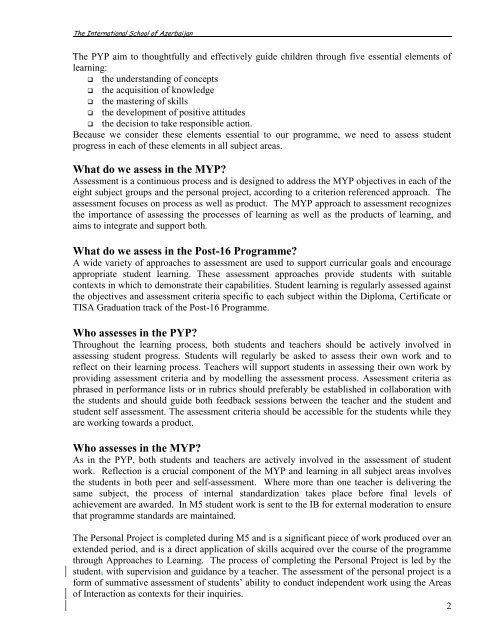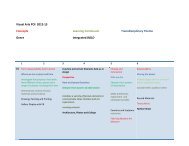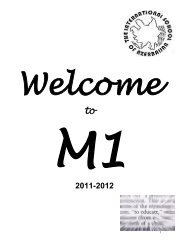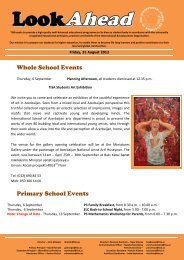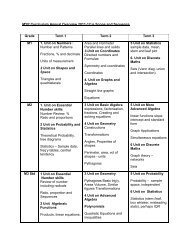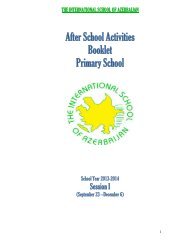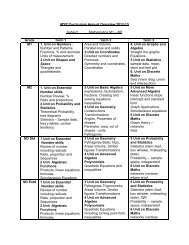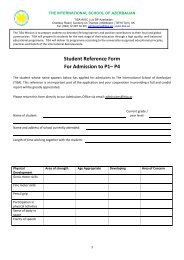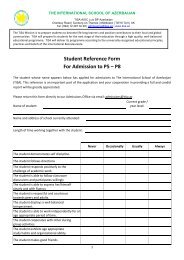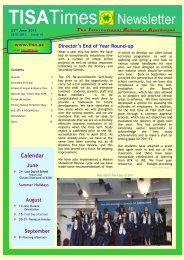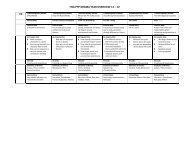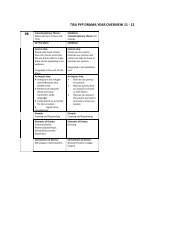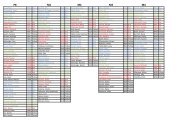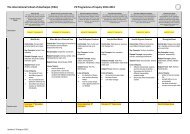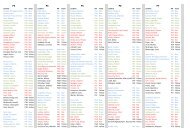Assessment Policy - The International School of Azerbaijan
Assessment Policy - The International School of Azerbaijan
Assessment Policy - The International School of Azerbaijan
Create successful ePaper yourself
Turn your PDF publications into a flip-book with our unique Google optimized e-Paper software.
<strong>The</strong> <strong>International</strong> <strong>School</strong> <strong>of</strong> <strong>Azerbaijan</strong><br />
<strong>The</strong> PYP aim to thoughtfully and effectively guide children through five essential elements <strong>of</strong><br />
learning:<br />
the understanding <strong>of</strong> concepts<br />
the acquisition <strong>of</strong> knowledge<br />
the mastering <strong>of</strong> skills<br />
the development <strong>of</strong> positive attitudes<br />
the decision to take responsible action.<br />
Because we consider these elements essential to our programme, we need to assess student<br />
progress in each <strong>of</strong> these elements in all subject areas.<br />
What do we assess in the MYP?<br />
<strong>Assessment</strong> is a continuous process and is designed to address the MYP objectives in each <strong>of</strong> the<br />
eight subject groups and the personal project, according to a criterion referenced approach. <strong>The</strong><br />
assessment focuses on process as well as product. <strong>The</strong> MYP approach to assessment recognizes<br />
the importance <strong>of</strong> assessing the processes <strong>of</strong> learning as well as the products <strong>of</strong> learning, and<br />
aims to integrate and support both.<br />
What do we assess in the Post-16 Programme?<br />
A wide variety <strong>of</strong> approaches to assessment are used to support curricular goals and encourage<br />
appropriate student learning. <strong>The</strong>se assessment approaches provide students with suitable<br />
contexts in which to demonstrate their capabilities. Student learning is regularly assessed against<br />
the objectives and assessment criteria specific to each subject within the Diploma, Certificate or<br />
TISA Graduation track <strong>of</strong> the Post-16 Programme.<br />
Who assesses in the PYP?<br />
Throughout the learning process, both students and teachers should be actively involved in<br />
assessing student progress. Students will regularly be asked to assess their own work and to<br />
reflect on their learning process. Teachers will support students in assessing their own work by<br />
providing assessment criteria and by modelling the assessment process. <strong>Assessment</strong> criteria as<br />
phrased in performance lists or in rubrics should preferably be established in collaboration with<br />
the students and should guide both feedback sessions between the teacher and the student and<br />
student self assessment. <strong>The</strong> assessment criteria should be accessible for the students while they<br />
are working towards a product.<br />
Who assesses in the MYP?<br />
As in the PYP, both students and teachers are actively involved in the assessment <strong>of</strong> student<br />
work. Reflection is a crucial component <strong>of</strong> the MYP and learning in all subject areas involves<br />
the students in both peer and self-assessment. Where more than one teacher is delivering the<br />
same subject, the process <strong>of</strong> internal standardization takes place before final levels <strong>of</strong><br />
achievement are awarded. In M5 student work is sent to the IB for external moderation to ensure<br />
that programme standards are maintained.<br />
<strong>The</strong> Personal Project is completed during M5 and is a significant piece <strong>of</strong> work produced over an<br />
extended period, and is a direct application <strong>of</strong> skills acquired over the course <strong>of</strong> the programme<br />
through Approaches to Learning. <strong>The</strong> process <strong>of</strong> completing the Personal Project is led by the<br />
student, with supervision and guidance by a teacher. <strong>The</strong> assessment <strong>of</strong> the personal project is a<br />
form <strong>of</strong> summative assessment <strong>of</strong> students‟ ability to conduct independent work using the Areas<br />
<strong>of</strong> Interaction as contexts for their inquiries.<br />
2


